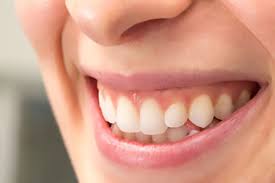Dental Veneers - Abu Dhabi - Dubai
Digital Smile Design (DSD) is an innovative approach in dentistry that uses digital technology to design and plan aesthetic dental treatments, particularly those related to smile makeovers and cosmetic dentistry. It combines artistry, science, and technology to create a customized treatment plan that enhances the appearance of a patient's smile. Here are some key points about Digital Smile Design:
- 1. Digital Imaging: DSD utilizes digital imaging and photography to capture high-quality images of the patient's face, teeth, and smile. These images are taken from various angles to provide a comprehensive view of the patient's dental and facial features.
- 2. Smile Analysis: Dentists or prosthodontists trained in Digital Smile Design use specialized software to analyze the patient's smile and facial characteristics. This analysis includes factors such as tooth shape, size, color, alignment, and overall facial harmony.
- 3. Smile Design and Simulation: Using digital tools, the dentist can modify the patient's digital images to create a simulation of the desired smile makeover. The software allows for precise adjustments to tooth position, shape, size, and color. This simulation helps both the patient and dentist visualize the potential results of the treatment.
- 4. Patient Involvement: One of the key aspects of DSD is patient involvement in the smile design process. Patients can actively participate in the planning by discussing their preferences, providing input on the desired outcome, and collaborating with the dentist to achieve the desired aesthetic goals.
- 5. Treatment Planning: The DSD process allows the dentist to develop a detailed treatment plan based on the digital analysis and smile simulation. This plan may involve various dental procedures such as orthodontics, veneers, crowns, or teeth whitening to achieve the desired outcome.
- 6. Communication Tool: Digital Smile Design serves as a communication tool between the dentist and the dental laboratory or other specialists involved in the treatment. The digital images and design serve as a blueprint, ensuring that all parties have a clear understanding of the treatment goals.
- 7. Predictability and Patient Satisfaction: By using DSD, dentists can provide patients with a more accurate representation of the expected results, improving treatment predictability and patient satisfaction. Patients can have a better understanding of the proposed changes and can provide feedback before the actual treatment begins.
Digital Smile Design has revolutionized the field of cosmetic dentistry by combining technology, aesthetics, and patient involvement. It allows dentists to create personalized treatment plans that meet the unique needs and preferences of each patient, resulting in improved outcomes and enhanced patient satisfaction. If you are considering a smile makeover or cosmetic dental treatment, you may want to inquire if your dentist offers Digital Smile Design as part of the treatment planning process.

